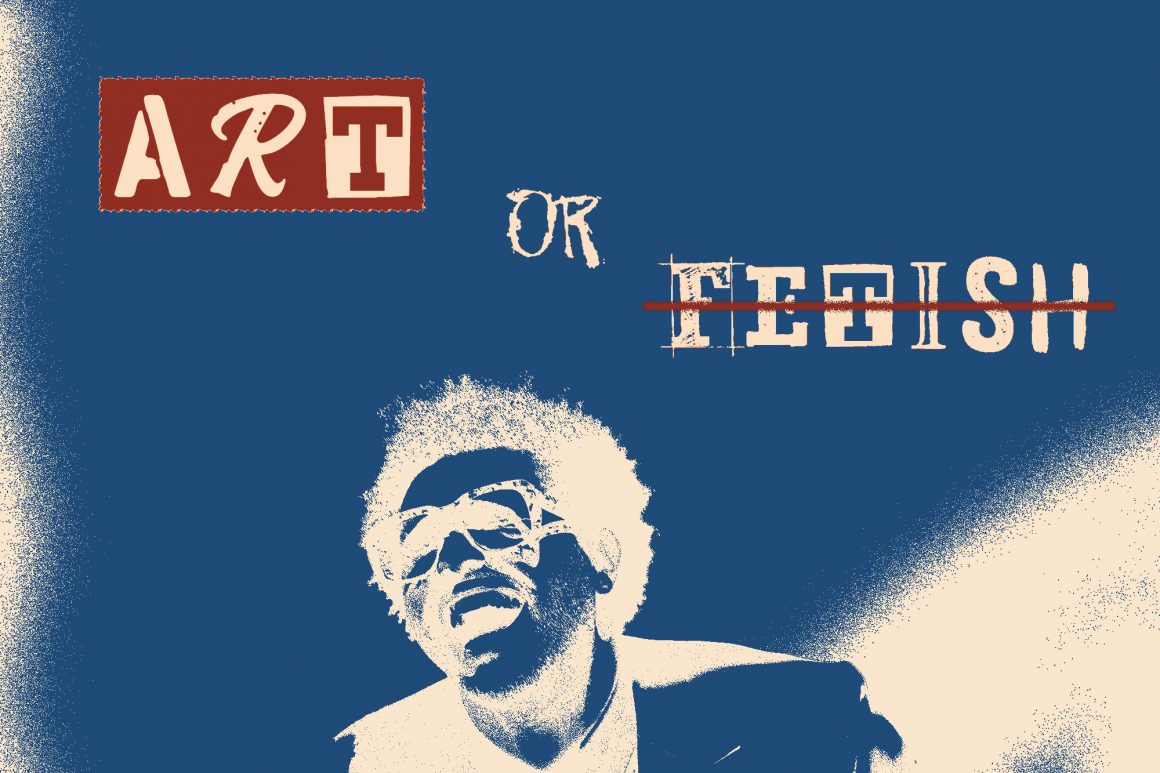
The grotesque art of The Weeknd and Sam Levinson
By Reyam Jamaleddine, June 17 2023
Trigger warning: sexual violence, toxic relationships
The weak, vulnerable, mentally traumatized woman. She resorts to giving her body to someone who tortures her — but she loves it. This is the ultimate male fantasy — at least depicted by Sam Levinson and Abel Tesfaye.
In the new HBO series The Idol the protagonist of the show played by Lily-Rose Depp, navigates the turmoil of her superstar career as she struggles with her mental health and the traumas of her life. That is until Tesfaye’s — better known as The Weeknd — character, Tedros enters the plot, she is then a weak and vulnerable woman, begging him to sexually torture her.
I have a bone to pick with The Weeknd. I have always been a fan of his music, overlooking the lyrics he sings. Although I have a bone to pick with him, I am grateful that he created and was part of such a disturbing production as it brought light to his personal disturbing lyrics and art sense.
Trilogy is The Weeknd’s debut album, it was released in 2012 and consists of 30 songs. This album features an ensemble of disturbing songs with disturbing lyrics and disturbing themes. I would say the theme of the entire album is well — disturbing. It would take a millennium to analyze each one of the songs and their lyrics because each and every one has its fair share of a toxic mess.
Notably, The songs “XO/The Host” and “Initiation” both musically sing about these words: “I got a test for you, you said you want my heart, well baby you can have it all, there’s just something that I need from you is to meet my boys, I got a lot of boys and we can make you right,” from the latter.
Initiation for the title of such a song is ludacris. It seems as if he is alluding to gang rape. In the song she is, well of course, drugged up and he again is alluding to her inability to consent. So in order for him to love her she needs to be initiated by taking a fatal dosage of the XO which are the drugs he’s constantly referring to and then allowing his team of boys to assault her?
Again in “XO/The Host”, the lyrics follow as: “I wanna catch you at your best, when your hair’s a mess, you look so depressed and you’re filled with regret, and you feel like you gotta go home.” So according to The Weeknd, his big sexual fantasy is a woman who struggles with mental health and is unsure or unable to consent to have sex.
It may be that psycho-analyzing his lyrics does not serve as a legitimate way to view his art or music. Nonetheless, this is the vibe he portrays in all his songs. A demented sexual weirdo who feeds off drugged-up vulnerable women. That is his art, that is the character he chooses to portray.
So it all comes back to The Idol, where The Weeknd’s character is acting out and living the fantasy life of the weirdo he portrays in his music. Lily-Rose Depp’s character is the vulnerable mentally ill girl that The Weeknd consistently sings about, his fantasy came into production with the help of Levinson.
Levinson is the director of Euphoria, another HBO show. The plot follows high school students who intoxicate themselves on drugs and alcohol, endure sexual assaults and live out toxic relationships where toxic and abusive sex plays a hand in everything they do.
As a viewer of both of these productions, I was uncomfortable viewing one insanely unnecessary sex scene after the other. This director feels the need to imbed a sex scene, or a nudity scene whenever he possibly can — even if it doesn’t make sense. Watching these shows was like watching porn that just so happens to come with a plot and characters, maybe some dialogue.
The significance of all of this is the unrealistic portrayal of women and what the male sexual fantasy is. It is harmful to continuously give a platform to people who consider taking advantage of and brutalizing women as an art form. Those who indulge in and enjoy producing a woman’s sexual defeat, provide space for scenarios like these to be recreated in the real world. If it is so glamorized to take advantage of vulnerable women in music, in cinema, in any form of entertainment and is excused as art, then what would keep someone from imitating said art in the real world?
Incidentally, these themes do occur in real life. Sexual abuse, toxic relationships, drug abuse, mental illness and trauma. When these themes come about in our personal lives they must not be accepted and normalized. Their normalization and glamorization serve as justification for deeming them just as a way of life — they are not.
This is not to say that being a fan of The Weeknd or a viewer of The Idol makes you a horrible person — on the contrary. Perhaps the positive reinforcement of all of this is our collective outrage and confusion. A discourse has begun on the boundaries and limits of what can be considered as too far in Hollywood productions.
This article is a part of our Voices section and does not necessarily reflect the views of the Gauntlet editorial board.
